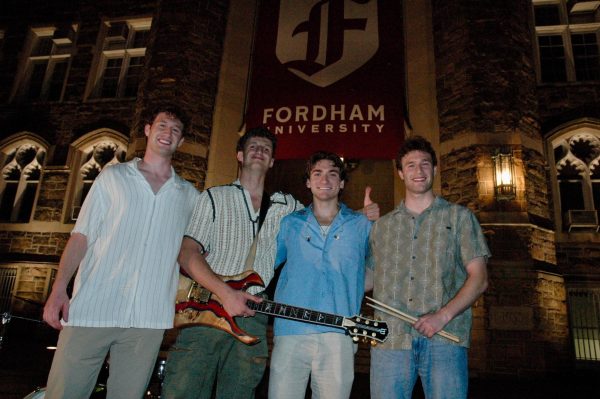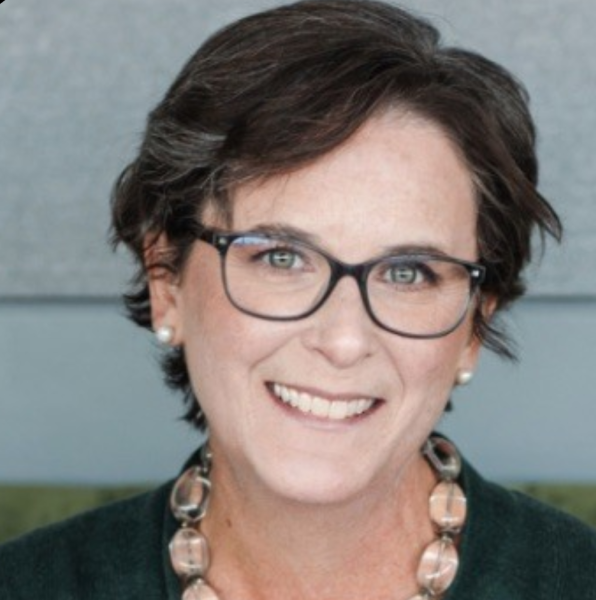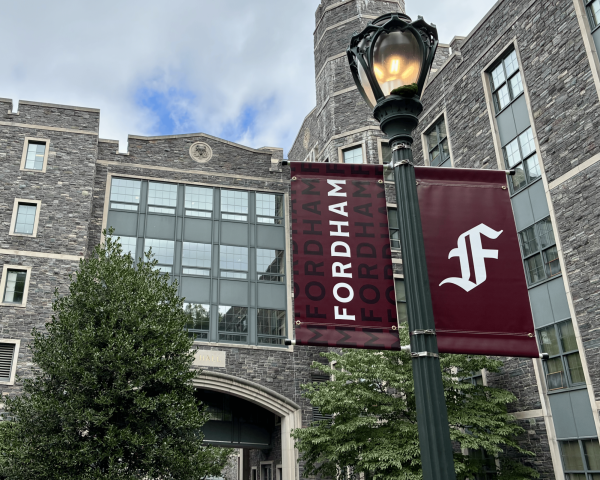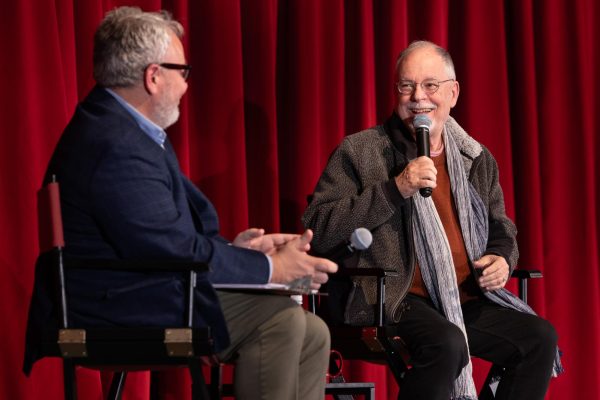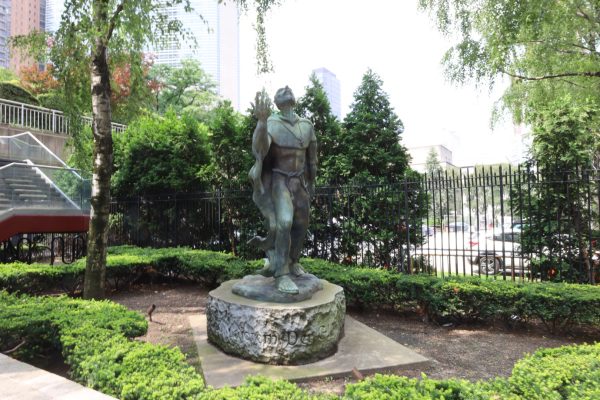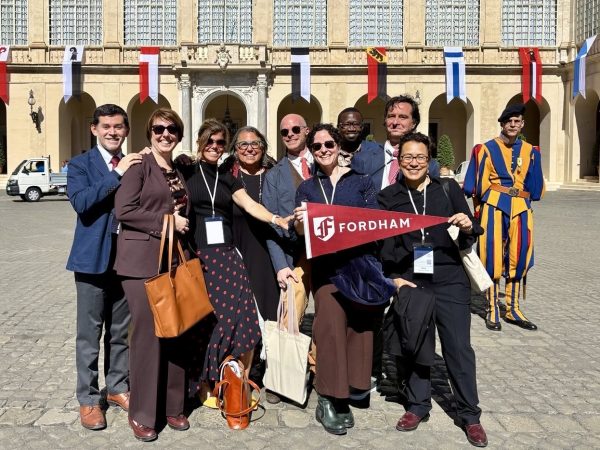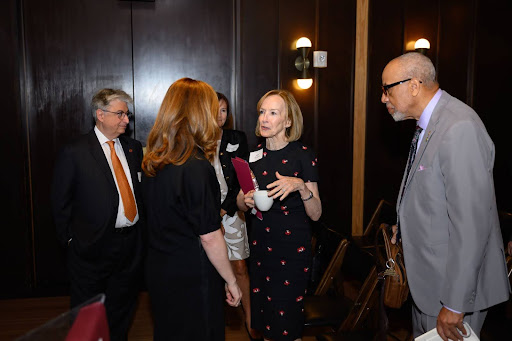Fordham College Democrats and Republicans Face Off
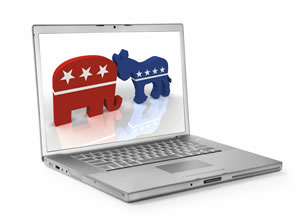
Fordham’s College Democrats and College Republicans touch on four hot-button political issues in virtual debate.
Fordham College Democrats and College Republicans faced off in a virtual political debate on Tuesday night. The debate, hosted by Fordham Political Review, required the two clubs to present their positions on four hot-button political issues: the United States’ response to the COVID-19 pandemic and its distribution of vaccines, the blocking of the Keystone XL pipeline development, the Iran Nuclear Deal and current plans for ending the student debt crisis.
The debate lasted four rounds, each covering one of the four main topics. Each side was asked to defend their position as well as analyze their opponents’ arguments. Both sides were allowed 10 minutes to speak each round. The 10 minutes were spread out over an opening statement, two alternating rebuttals and a final closing statement.
The first round of the debate posed the question of whether or not the United States sufficiently handled the coronavirus pandemic, as well as if the current model of vaccination distribution is a success. The speakers were asked to look back on over a year of government decision-making and public statements in order to determine their answer.
The College Republicans presented their case first and argued that the social and economic harms that have been inflicted by the country’s lockdown largely outweigh the real advantages provided by the lockdown. Emma Lawton, FCRH ’21, cited reported decreases in mental health, rises in unemployment and the educational drag on students (especially young, elementary school students who have lost almost a year of schooling) as detrimental negatives of the lockdown.
Lawton also attributed the initial success of the vaccination process (i.e. speedy development) to the Trump administration.
In response, the College Democrat representative Clare Qian, FCRH ’24, laid out the group’s position in three key arguments. First, the state-based approach to dealing with pandemic lockdowns and vaccinations has been considerably worse than it could be under federal-level regulation, said Qian. Secondly, the United States government under former PresidentTrump did not provide the transparency necessary to unify the country under the pandemic. Instead, Qian argued, government leaders spoke with anti-vaccination rhetoric that proved harmful to the country.
Lastly, the government should continue to provide vaccinations at the scale of mass distribution, said Qian. She also credited the Trump administration to quickly develop and provide the vaccination at its early stages but mainly credits the Biden administration for the successes of the vaccine’s distribution.
The second round of the debate focused on recent controversies around the development of the Keystone XL, an oil pipeline designed to carry crude oils from Canada to various parts of the United States. An executive order from President Biden halted the development of the final phase of the pipeline, and the moderators of the debate asked each club to respond to the order.
Teagan Angell, FCRH ’24, speaking for the College Democrats, mainly cited concerns for the pipeline’s instability, its contribution to rising climate change crises and the issue of the pipeline running through land designated as Native American-owned territory.
“The keystone has already had a dozen leaks and will likely have more,” Angell said. The leaks will have incredibly detrimental effects on the human, animal and aquatic ecosystems in the surrounding areas, argued Angell.
Angell also responded to the belief that blocking the pipeline’s development would stunt employment growth, stating that a vast majority of the jobs provided by the pipeline would prove temporary and unsustainable.
Speaking for the College Republicans, Timothy Kyle, FCRH ’21, responded to environmental concerns by saying that the shift from fossil fuels to alternative energies must be gradual in order for alternative energy industries to better develop. However, the abrupt halt of the Keystone XL does not help the growth of alternative energy, Kyle stated. Kyle also stressed the economic shortcomings that result from blocking the XL, calling the executive order “an assault on an industry that employs millions of Americans” without a realistic plan of action to move forward.
This assault includes stunting employment growth and removing the most reliable mode of transportation for oil that will continue to be produced, according to Kyle. Instead of the pipeline, the oil will have to be transported on less reliable trucks or trains, said Kyle.
The third topic up for debate was the validity of the United States’ decision to leave the Joint Comprehensive Plan of Action, more commonly known as the Iran Nuclear Deal.
Opening the round for the College Republicans, Gabriel Lopez, FCRH ’22, made the argument that the Iran Nuclear Deal does not provide any real, material benefit for the United States. Instead, Lopez argued that it has resulted in a deal in which the United States provides money to Iran and, in return, Iran will halt the enrichment of uranium. Lopez said he believes Iran will secretly enrich uranium, thus giving the United States no real benefit from the deal.
Hani Jawabrah, FCRH ’22, speaking for the College Democrats, argued that pulling away from the nuclear deal with Iran is a mistake. The effects of leaving the deal, said Jawabrah, have only drawn a rift between the United States and Europe, as well as increased tensions in the Middle East. Leaving behind a deal that managed to maneuver around multiple nations and their concerns and instead of dealing directly with Iran’s nuclear capabilities will only escalate tensions and destabilize the region, he said. Under the deal, Iran is forced to wait 15 years before it is officially allowed to enrich uranium. According to Jawabrah, those 15 years could be vital in working to ease tensions in the Middle East, hopefully creating friendly relationships.
On the other hand, Lopez argued pulling out of the nuclear deal and taking care of Iran’s nuclear capabilities now, instead of 15 years later, is a much more preferable option than staying in the deal.
The final round of the debate focused on an issue directly affecting both the debate’s participants and audience: Americans hold $1.47 trillion in student debt, so what should state and federal governments do to remedy this?
Colton Kubiniec, FCRH ’21, arguing for the College Democrats, said he believes that the best course of action for the United States federal government would be to enact debt forgiveness to eliminate existing student debts. Additionally, Kubiniec argued that providing free public university education for all Americans would not only stop student debt numbers from rising but would also encourage more people to attend college and enter an economy that is increasingly reliant on higher education-based skilled labor.
While Kubiniec recognized the economic stress this would cause, shifting money towards education instead of constantly readjusting billions of dollars for military funding would greatly ease the transition into more accessible public colleges, he argued.
On the opposing side, Dane Salmon, FCRH ’21, said he believes that the solution to the student debt crisis is not to completely forgive student debt or provide free public university education but to enact a third option. This option would, as Salmon described, phase out federal student loans and replace them with other forms of financial aid, like Pell Grants. According to Salmon, this would not only address the government owning 90% of student loans at high interests but would also ultimately end the cycle and cost considerably less than any plan proposed by the government.
In rebuttal to Kubinieic’s proposals of debt forgiveness and free education, Salmon argued that these plans would unfairly burden taxpayers with increased taxes, lowering their disposable income and saddling them “with something they shouldn’t be handling.”
The debates energized both Fordham’s College Democrats and College Republicans, bringing them together to debate solutions and opinions to a handful of political issues. Ranging from the COVID-19 pandemic lockdown to the student debt crisis, the debate topics provided students the opportunity to discuss important political issues and demonstrate their knowledge and interest in public policy.
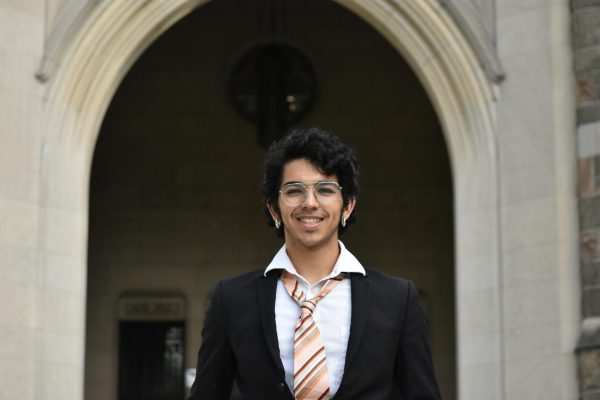
Sebastian Diaz is a senior from Chapel Hill, N. C. who is double majoring in journalism and film. After starting as a news reporter for The Fordham Ram...





































































































































































































